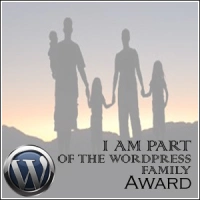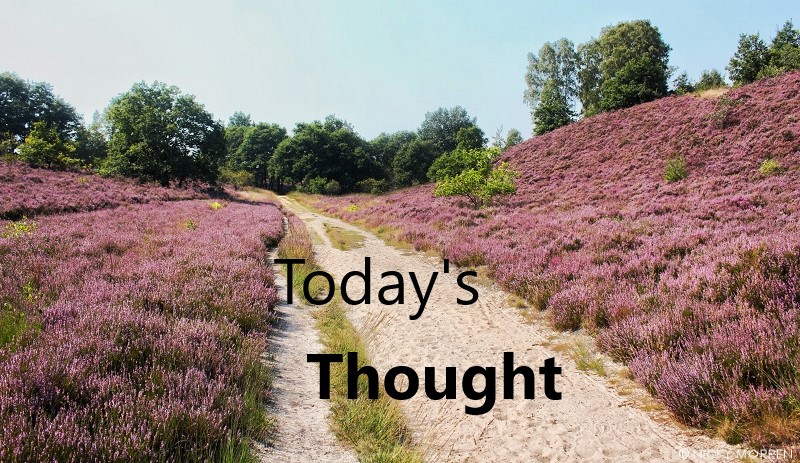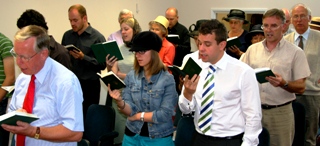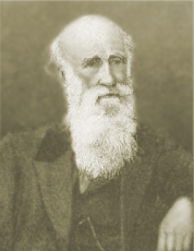At the May plenary of the EU’s European Neighbourhood Policy (ENP) the EESC called for a more proactive, dynamic approach, focusing on regional stabilisation and greater social and civil dialogue.
The problems in Turkey were not yet there, putting a shade on the EU’s relationship, with this country which clearly is gliding to a dictatorial state. Also Brussels trying to find ways to ‘bargain’ with Turkey and therefore to afraid to step on Erodgan’s toes today sees more and more people finding their way into Europe by Egypt, and that country not doing much to stop the passers by. Though Europe tries to bring more pressure on the Egyptian authorities to stop the smugglers by using aid and trade ties.
The ENP should be an effective tool for cross-border cooperation. Launched in 2004 to build on common interests and values with the EU’s southern and eastern neighbours and promote political and economic cooperation, but its “one-size-fits-all” approach has not been able to account for or deal with ongoing fragmentation in both regions.
With the refugee crisis we have seen that there are tendencies to protect the own nation more in favour of working together sharing equally, those who want to find refuge in the European Union. The situation in Turkey, Syria and Iraq showed to have a lot of influence on the stability in our own regions.

Asylum applications in EU and EFTA states between 1 January and 30 June 2015 according to Eurostat data
The last few years several European countries had problems trying to manage migration flows from the Mediterranean. It has been particularly challenging in the
past two years, given the impressing numbers of persons trying to reach Europe through the Mediterranean Sea. In 2014, 228.662 arrivals occurred, compared to the
76.449 of the previous year. This means a 277 % increase compared to 2013 in the central Mediterranean route alone (with departures from North African countries such as Tunisia and Libya directed to Southern Italy). Such journeys have predominantly involved Syrians, Eritreans, Afghanis and nationals from Sub-Saharan Africa, with respectively around 73,800, 34,200, 13.200 and over 25.929 migrants reaching the European coasts, reflecting the situation of political instability and unrest in their home countries. The Lampedusa incident of October 2013 was, sadly, only one of the many tragic incidents that took place in the Mediterranean. More than 3.000 causalities are estimated to have occurred in 2014 alone. Such numbers clearly evidence the magnitude of the problem, and explain this focus for the first meeting of the European Migration Forum which took place at the beginning of 2015.
In 2016 we could see many more discouraged, when left with no other alternative, looking for other ways to cross borders and seeking international protection taking up irregular routes to reach Europe, whilst migrants try to find alternative legal avenues to enter the EU, sometimes also via the asylum procedure, creating significant challenges for the functioning of the Common European Asylum System (CEAS).
Lots of British choose for a Brexit in the hope asylum-seekers could be stopped, but they forget the human traffickers and smugglers work in well-established criminal transnational networks and have no scruples, so the feared ‘invasion’ shall not stop. Illegal entry to Great Britain shall not be stopped whilst now for Europeans travelling between the island and the European continent shall take more time and cost a lot more to both parties, having again a stronger border control (Last week three hours extra). The Brexit also brings more danger to the outcasts with traffickers now using even more perilous and ruthless ways that put the lives of migrants at risk.
The mixed nature of migration flows entails a variety of challenges that need to be addressed at multiple levels, and that require a combined action between the public and the private, the local, the national and the communitarian sphere.
The problems of the Mediterranean may in fact only be effectively addressed if maximum cooperation and coordination is reached within the multi-layered governance that operates in this field.
Having certain countries putting up fences, barbed wire, and neglecting the Schengen Borders Code, we notice that border control in the East of Europe is not carried out in full respect of fundamental rights and the rights of persons seeking international protection, in particular as regards the principle of non-refoulement and effective access to the asylum procedure. To ensure the correct application of the principle of non-refoulement, Member States need to have in place an individual procedure which is fair and effective, and which allows them to distinguish persons seeking international protection from other migrants.
The amount of increased attacks by radicalised asylum-seekers frightens many Europeans, but here the leaders have to take a firm stand and proof that they seriously screen those people wanting to enter our Union.
When the EU asylum legislation ensures that applicants have access to adequate housing, food, basic health care, education for minors and access to employment if the first instance procedure last for longer than nine months, the least it can expect of those who are helped is that they shall do an effort to integrate in our community and want to accede to our open way of life with freedom of thought and freedom of expression, inclusive freedom of religion. All the EU states should make it very clear that those who do not want to accept the freedom of religion in our regions would better go back where they came from and arrange there their own religious state.
It is very important that those who want to come and live in Europe from the start do know what to expect and how this state wants them to respect others. It is clear that they have the right to fair asylum procedures and dignified reception conditions, but from them the inhabitants of the union should also be able to expect dignity and respect. Important for the perception of asylum seekers to be welcomed in the host Member State, is that the civilians show their willingness to welcome them and to help them to build up a new life, which in turn will influence their willingness to integrate once recognized.
We must be aware that those fleeing people are an easy pray. Unavailability or limited access to legal channels for migrants and asylum seekers, combined with situations of harsh poverty and/or social and political instability in their countries, can push people to seek the services of criminals who intentionally facilitate their unauthorised entry, transit or residence into the EU, that is, migrant smuggling. Having them pushed in a corner they also can easily come to distrust our system and have them to follow the false teachers of religious groups which offer them some guidance and clear rules.
Whether in the process of undertaking a perilous journey or once they have reached their destination, irregular migrants go through life-threatening and stressful situations. Whilst clamping down on smugglers remains a priority, this cannot come at the expense of the civil society that operates only on grounds of humanitarian duties, whether assisting migrants at sea in line with the obligations set by the international law of the sea or offering vital help during their period of (irregular) stay in the EU.
Getting the rescued from the danger of the sea and than sending them back to Turkey where they’ll face an other torture is not the solution.
Europe should try to get all European Union members on one line, giving enough and good information on those who are willing to enter the Union. In case they cannot hold the own people in line, more ultra-right movements will endanger the stability of the whole nation. All nations of the union should clearly show their voluntary preparedness to come to a working and reasonable cross-border cooperation. Without it the whole EU will be weakened.
The EESC calls for a more proactive, dynamic approach, focusing on regional stabilisation and greater social and civil dialogue.
“It is true that the EU has been confronted with disruptive, sometimes dramatic developments in both the southern and eastern neighbourhoods. However, lack of vision will not help overcome the deadlock.”
says the EESC which suggests defining a new, bold, dynamic ENP agenda, including the prospect of EU accession for some partner countries which have such aspirations and are able and willing to meet the requirements.
+
Preceding articles
If Europe fails on the question of refugees, then it won’t be the Europe we wished for
Schengen area and Freedom for Europeans being put to the test as never before
Asylum seekers crisis and Europe’s paralysis
Complaining and fighting asylum seekers not giving signs of thankfulness
Summary for the year 2015 # 2 Strewn with corpses and refugees
Britain’s position in an age of increasing globalisation
Knife-trust in democratic sore back
Europe unites to defeat terror
++
Additional reading
+++
Further reading
- Italian media campaign against African immigrants
- Tender freedoms, visas, lipsticks…
- At The Edge Of Fortress Europe: ‘Fire At Sea’ Reviewed
- Photos: Four migrants found dead, 945 rescued from boats in Mediterranean
- Europe Fears New “Highway” Opening For Refugees and Migrants From Egypt
- Refugees and the narrative of choice: why language matters
- BRICS Resolve to Combat Human Trafficking, Migrant Smuggling
- Ansbach, Germany: Muslim Asylum Seeker From Syria Detonates Bomb Outside Bavarian Music Festival Injuring 15
- 4 observations after 3 days in Greece
- Athens: one week in the crisis
- Hungary is the latest country to lash out at the EU by calling a controversial referendum
- France throws out academic accuse d over migrant riot – The Times
- Strange Fish #2
- You are a European
- Getting Hacked off
- Poking the hornet’s nest
- Trial at Integrate
- Flying the flag for Leeds in Eurocities
- Up the Hope Street – Part 2
- Daily Limerick July 16, 2016
- Daily Limerick July, 19 2016
- An uplifting end to Refugee Week 2016
- I am an immigrant
- I am an immigrant. (Epic Ashley)
- Bist du Migrant? Bereite dich auf den Arbeitsmarkt vor!





























 Biblestudents – Bijbelstudenten
Biblestudents – Bijbelstudenten 0 + Bloggers for Peace
0 + Bloggers for Peace Free Christadelphian Ecclesia
Free Christadelphian Ecclesia Hoop tot Leven – Redding in Christus
Hoop tot Leven – Redding in Christus Vrije Broeders in Christus (Free Flemish Christadelphians on Wordpress)
Vrije Broeders in Christus (Free Flemish Christadelphians on Wordpress)















Pingback: disue
Reblogged this on hungarywolf.
LikeLike
Thank you for making connections with two of my articles on notamigrant, good to know the experience support a wider body of evidence
LikeLike
Pingback: Brexit, The Bible, What next? – Belgian Ecclesia Brussel – Leuven
Pingback: At the closing hours of 2016 #1 Looking down at terror | Marcus Ampe's Space
Pingback: At the closing hours of 2016 #2 Low but also highlights | Marcus Ampe's Space
Pingback: From Guestwriters 2016 in review | From guestwriters
Pingback: 2016 in review Politics #1 Year of dissonance | Marcus Ampe's Space
Pingback: Having been too busy with writing for others, leaving my own place quiet for some time | Marcus Ampe's Space
Pingback: Leading the fight for freedom – in Turkey and elsewhere | Marcus Ampe's Space
Pingback: European migration policy not working | Marcus Ampe's Space
Pingback: In the aftermath of the failed coup – Some View on the World
Pingback: Russian bombers fly over Belarus as border crisis deepens – Some View on the World